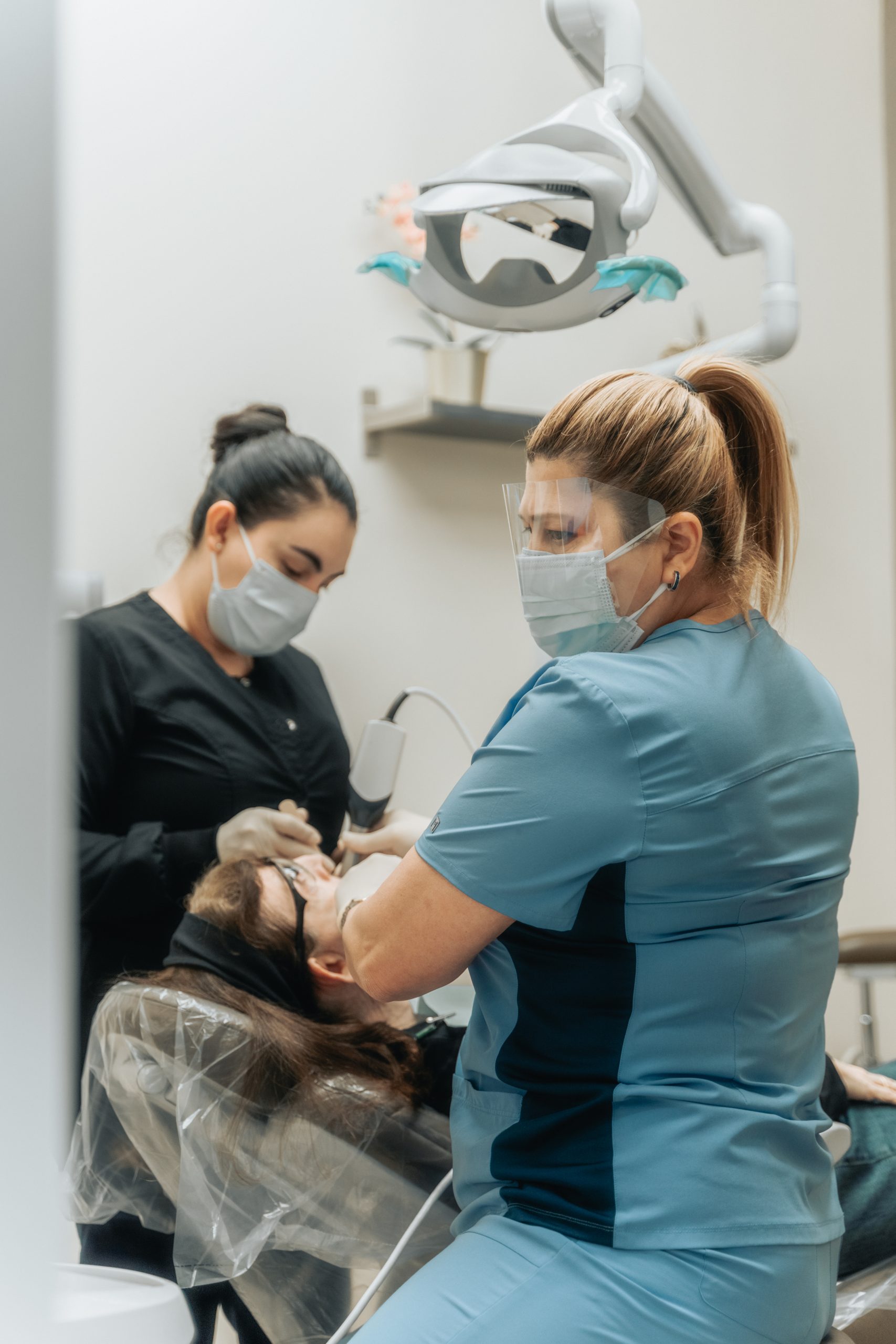Affordable Dental Treatment Options from Leading Dentists Eugene
A Guide to Common Dental Problems That Require a Dental practitioner's Treatment
Toothaches, for example, can be symptomatic of extreme issues such as dental caries, broken teeth, or abscesses, each needing certain treatments like fillings or origin canals. Impacted knowledge teeth and jaw conditions can introduce substantial pain and problems.
Toothaches
Toothaches are a typical oral problem that can range from mild discomfort to extreme pain, typically showing an underlying problem that needs specialist focus. This pain can originate from a selection of resources, consisting of dental tooth cavities, cracked or fractured teeth, and dental abscesses. Each of these conditions presents substantial threats if left unattended, possibly resulting in more extreme issues.
Dental tooth cavities, also referred to as cavities, are caused by the buildup of plaque that erodes tooth enamel, causing holes or pits in the influenced teeth (eugene dentist). Broken or fractured teeth, on the various other hand, might arise from trauma, grinding, or attacking into tough objects. These structural problems can reveal the sensitive inner layers of the tooth, causing sharp discomfort and raising the threat of infection. Abscesses are uncomfortable infections at the root of a tooth or in between a tooth and the periodontal, usually arising from severe degeneration or unattended tooth cavities.
Reliable therapy of toothaches entails addressing the origin. This may consist of fillings for tooth cavities, crowns for broken teeth, or origin canals and anti-biotics for abscesses. Very early treatment by a dental specialist can protect against further wear and tear and reduce pain, making sure ideal dental wellness.
Gum Tissue Illness
Gum disease, a prevalent yet commonly forgotten oral problem, shows up with swelling and infection of the gums and sustaining tissues. If left untreated, gingivitis can advance to periodontitis, an extra severe form identified by the damage of the supporting bone and connective tissue, eventually leading to tooth loss.
The main cause of gum tissue illness is bacterial plaque, a sticky, colorless film that continuously bases on teeth. Poor oral hygiene, smoking cigarettes, genetic predisposition, and certain clinical problems, such as diabetes, can worsen the risk of developing periodontal illness. Routine dental examinations are crucial for early detection and monitoring of this condition.
Treatment for periodontal disease varies from expert dental cleaning and scaling to advanced treatments like root planing and gum surgical treatment, depending on the intensity. Maintaining great oral hygiene practices, including brushing twice daily, flossing, and making use of a disinfectant mouthwash, can considerably minimize the risk of gum tissue illness and advertise much healthier periodontals.
Tooth Cavities
Dental caries, additionally understood as tooth decays, are a typical oral problem identified by the damage of tooth enamel as a result of acid-producing germs in the mouth. These microorganisms flourish on sugars and starches from food and beverages, generating acids that slowly wear down the enamel, resulting in dental caries development.
Early-stage tooth cavities might not show signs and symptoms, yet as they progress, they can trigger tooth pain, sensitivity to cool navigate here or hot, visible openings or pits in the teeth, and discoloration. If left without treatment, cavities can penetrate deeper layers of the tooth, potentially leading to extreme discomfort, infection, and even tooth loss.
Avoiding cavities includes a combination of great dental hygiene practices and nutritional practices. Normal brushing with fluoride toothpaste, flossing, and regular oral check-ups are crucial. Dentists might additionally advise additional safety nets, such as fluoride treatments and dental sealers, to secure teeth from decay.
Treatment for dental caries depends on their seriousness. Minor tooth cavities can be resolved with oral fillings, which recover the tooth's framework. More sophisticated situations might need crowns or perhaps origin canal treatment if the degeneration has reached the tooth's pulp. Prompt treatment by a dentist is necessary to prevent complications and maintain general oral health and wellness.

Impacted Knowledge Teeth
Impacted wisdom teeth are a prevalent dental issue that happens when the 3rd molars, frequently described as wisdom teeth, fall short to fully emerge or straighten effectively within the mouth. This problem frequently arises from not enough space in the jaw or an irregular growth angle of the teeth. Influenced wisdom teeth can lead to a selection of problems, including discomfort, damages, and infection to adjacent teeth.
When knowledge teeth become affected, they are typically partially emerged or remain entirely under the periodontal line. This partial eruption can create a path for bacteria to enter the periodontals, leading to infections that manifest as swelling, discomfort, and even high temperature. In addition, influenced wisdom teeth can apply pressure on bordering teeth, potentially triggering crowding or shifting.
A comprehensive dental examination, normally entailing X-rays, is my latest blog post essential for identifying affected wisdom teeth. Normal oral exams are suggested to monitor the problem and maintain dental health.
Jaw Conditions
Jaw conditions, collectively called temporomandibular joint (TMJ) conditions, encompass a variety of conditions that affect the jaw joint and bordering muscles. These problems can manifest with signs and symptoms such as pain or inflammation in the jaw, trouble chewing, a standing out or clicking sound when shutting the mouth or opening, and also chronic frustrations. TMJ problems can arise from different factors, including joint inflammation, jaw injury, or regular behaviors like teeth grinding or jaw clenching.
Medical diagnosis of TMJ disorders usually involves a thorough examination by a dentist, consisting of a physical assessment of the jaw, dental X-rays, and occasionally advanced imaging strategies like MRI or CT checks to examine the joint's condition. Non-invasive techniques such as physical therapy, dental splints, and drugs intended at reducing inflammation and pain are usually first-line therapies.
Very early intervention by an oral professional is essential to avoid the development of TMJ conditions and to maintain total oral health and wellness. Patients experiencing consistent jaw discomfort or dysfunction should look for prompt analysis and therapy.
Final Thought
Toothaches typically suggest underlying concerns such as dental caries, split teeth, or abscesses, calling for punctual intervention. Influenced knowledge teeth and jaw problems additionally require specialist attention to relieve pain and avoid additional issues.
Dental dental caries, also understood as decays, are caused by the buildup of plaque that deteriorates tooth enamel, leading to holes or pits in the impacted teeth. Abscesses are excruciating infections at the root of a tooth or in between a tooth and the gum tissue, typically resulting from extreme degeneration or neglected dental caries.

Furthermore, influenced wisdom teeth can put in stress on surrounding teeth, possibly triggering my latest blog post crowding or moving.